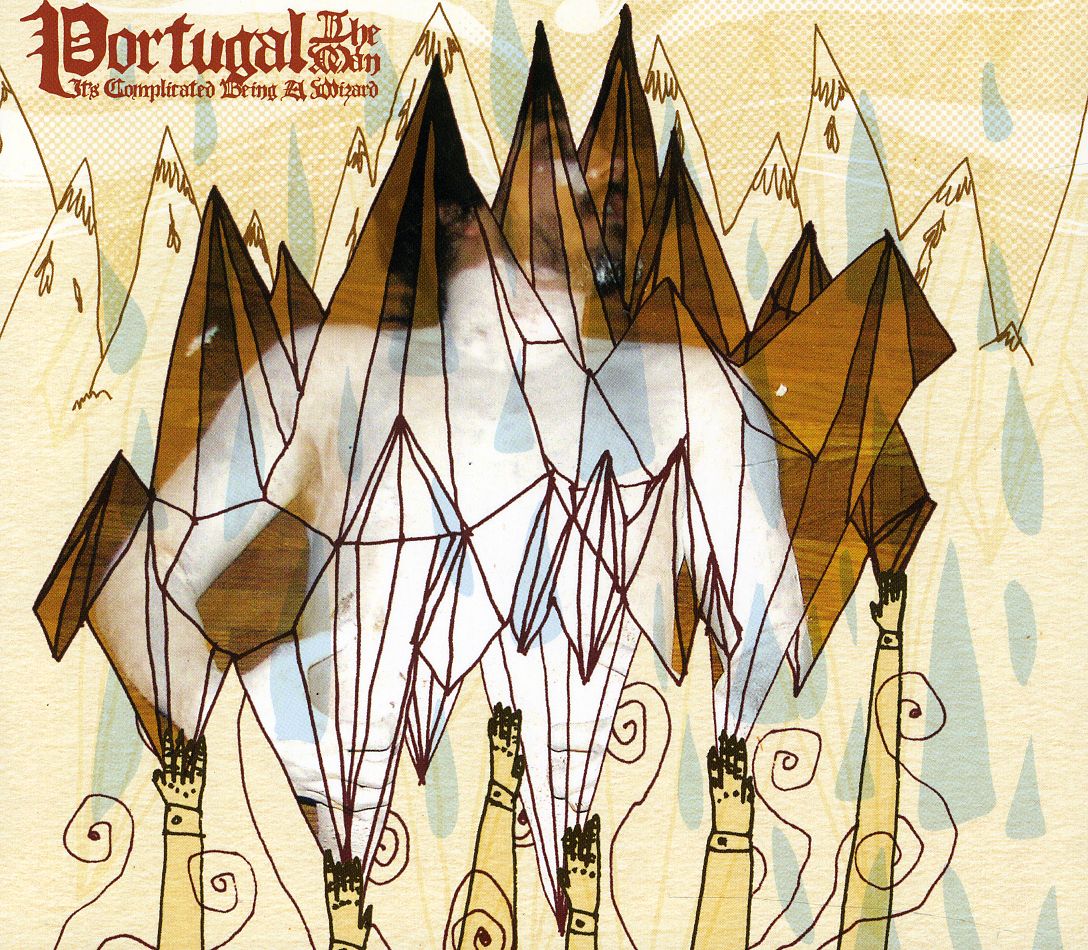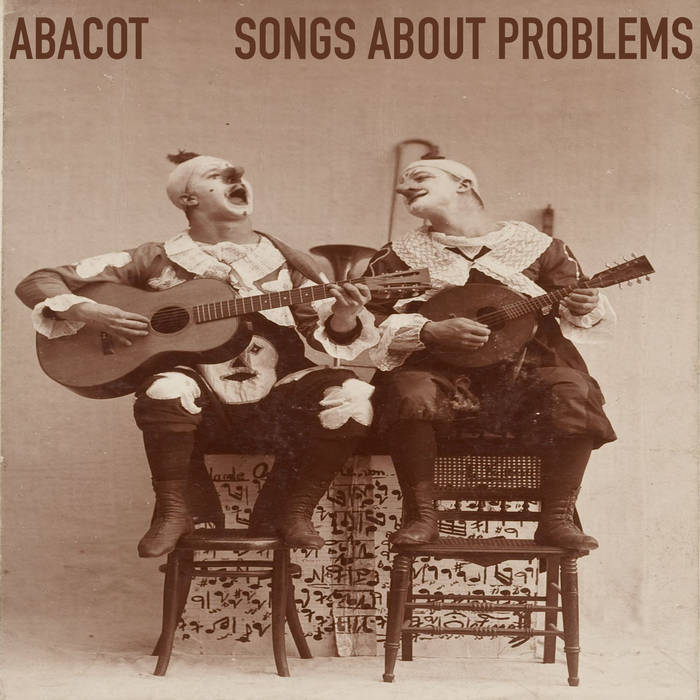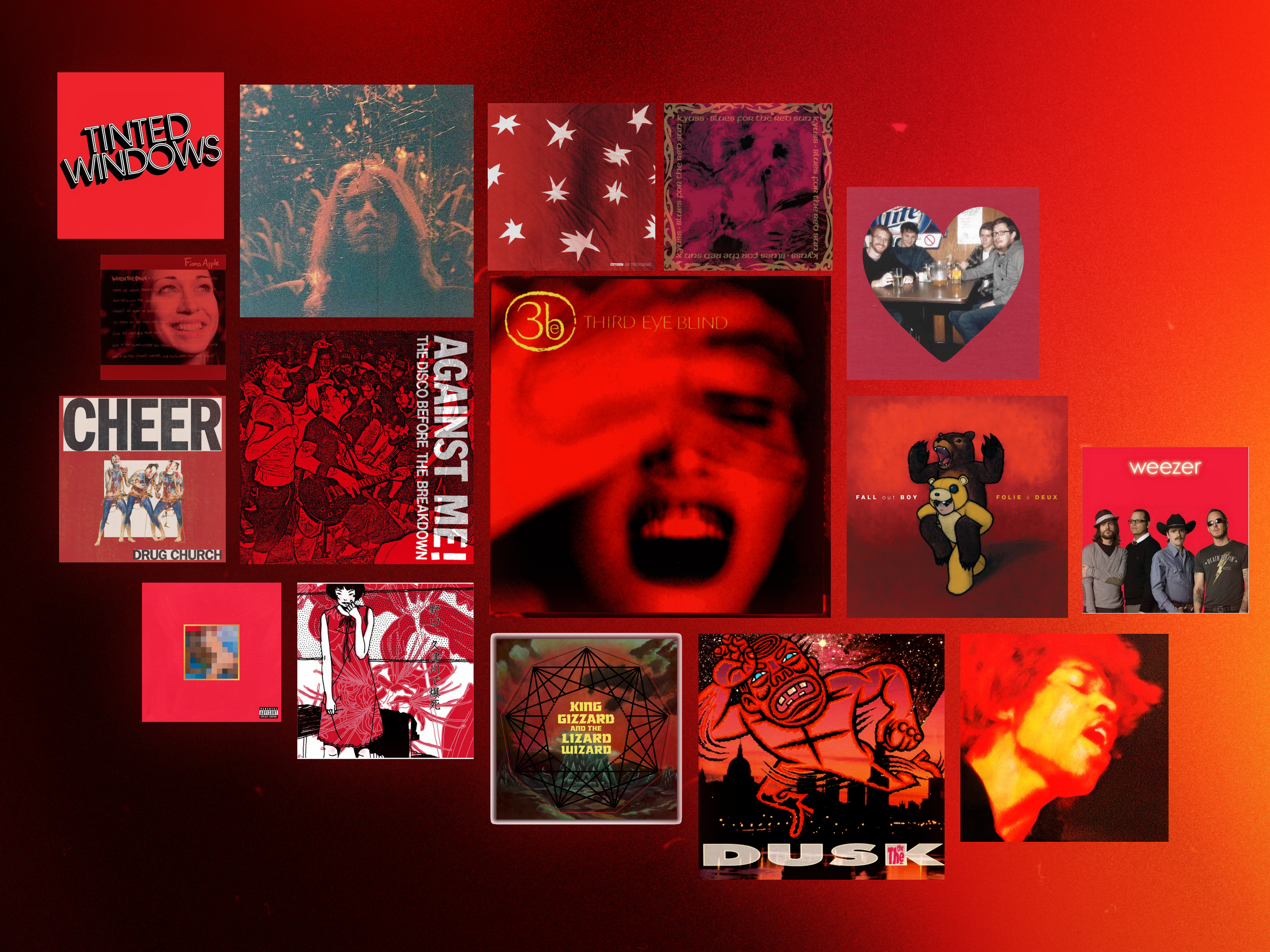I Liked Them Before They Were Cool: A Portugal. The Man Discography Ranking
/Within the last decade we’ve witnessed the rise of a new saying. A disgusting, insulting, and nasty set of words that are designed to provoke and disturb. Almost instantly, the phrase caught fire and took on a life of its own, infiltrating the popular lexicon within a matter of months. It’s a sentence I almost hesitate to write here, even as an example.
I liked them before they were cool.
Simultaneously a criticism, a concern, and a commentary, the loaded phrase triggers parties on both sides of itself. It’s one of the grossest, most overused, and hopelessly cliched sentiments to surface within the past decade of music fandom… Even still, I understand the mentality behind the cred-seeking statement.
While it’s commonly associated with hipsters and the indie elite, you can see the same attitude emerge any time a once-small underground artist hits critical mass and gains enough popularity to make a “mainstream transition.” In some cases (like Nirvana) this transition is out of even the artist’s hands. For fans though, liking an artist “before they were cool” is a concern that the artist will “sell-out” but also an attention-seeking claim in which the speaker is probing for recognition that they are “with it.” It’s simultaneously self-validation and a worry that money will eclipse purity in the heart of the artist.
It’s a double-edged sword because, yeah, any band’s goal is to gain more fans, sell more records, and play bigger shows. It is a career after all, and a hard one at that. Fans should want a band’s success and relish being a part of their rise, but at the same time, it’s also hard not to feel a little bit of ownership. After all, you’re part of the reason they’ve come this far. Your merch is a testament to your commitment. The ratty t-shirts from bygone tours proving unequivocally that you’re no fairweather fan.
Meanwhile, the band that you once felt an intimate relationship with is now on the radio every hour, perched dominantly atop the charts, being lip-synched on Jimmy Fallon, and a staple of every Millennial’s “Chill Vibes” Spotify playlist. It’s easy to see how this dichotomy can evoke contradictory emotions within even the most devoted fan.
A bit of a pivot, but (if I were a sports guy) I would guess that this is what it feels like to see your team make it to the playoffs. You’re happy for their success, and you’re absolutely rooting for them, but there’s also a suspicious number of “diehard” fans that seem to have come out of the woodwork. Where were you all last year when we were the underdogs getting our asses kicked? Suddenly the fanbase that you once identified with (or even built your personality around) is now comprised of people that you don’t recognize or actively dislike. If they aren’t as religiously devoted as you, so how can you even relate?
If it wasn’t evident by the title of this article or the Miley Cyrus-laden lip synching clip, I’m talking specifically about Portugal. The Man. The Alaskan-born, Portland-based rock band has reached absolutely astronomical heights this year following the crossover success of Woodstock their eighth LP.
Detailed in this post, Portugal. The Man has been in my life for nearly a decade at this point. Their first release served as one of a half-dozen albums that opened me up to the world of indie music back in high school, and the band has been a fundamental force in both my musical and artistic taste ever since. At the time of writing, various Portugal. The Man albums have been the soundtrack to nearly half of my life, which seems grandiose, but I say without hesitation.
I consider myself lucky to have been a fan of Portugal. The Man from the beginning, and watching their rise in 2017 has been nothing short of extraordinary. Their breakout hit “Feel It Still” has gone platinum, charted in every country under the sun, and most recently made history as rock’s biggest crossover hit in five years. On top of this commercial success, the song has also seen literalcommercial success (multiple times), soundtracked trailers, and been remixed to high-heaven. At this point, “sensation” is almost under-selling it.
It’s easy to see why “Feel it Still” has seen such success; the song is groovy, unique, and dancy as all get-out. At a certain point, I began to wonder why it’s taken P.TM this long to chart because “Feel It Still” is far from their best or most catchy song. Yet since it’s release in early 2017, the single has become a cultural landmark that’s sent the band on a path to the pop music stratosphere and forever cemented them as alternative rock mainstays.
For six years straight Portugal. The Man worked diligently, releasing one album a year from their inception in the mid-2000’s. As if that output wasn’t impressive enough, they also managed to challenge fans and themselves alike by switching up their style significantly from one record to the next. While the band flew under the mainstream radar for the most part, P.TM still managed to garner a devoted following over time. Year after year, album after album, the band slowly began expanding their fan base, touring, and cutting their teeth with a seemingly endless stream of creativity.
As a result, the Portugal. The Man’s discography is rich, complex, and rewarding to dive into. The band’s newfound success and proliferation has found me reflecting on their decade-plus history and (now) deep discography. For years you could find me online championing the band as having one of the “best discographies in indie rock, ” and I still stand by that statement to some degree. If anything, “indie rock” is probably the most questionable part of that claim, but we’ll get to that soon.
The band’s most recent press tour has found them questioning the same thing. Cemented by a hyper-self-aware t-shirt, Portugal. The Man has found themselves at a crossroads, now the center of debates about success, selling out, and the “pureness” of artistry. This isn’t a post about that. I may have already talked about it too much, but I’m not here to debate whether or not the band has sold out because either way, I liked them before they were cool. Just kidding.
No, this is a celebration. A chance to put this band’s fantastic work on a pedestal and explain why each record is wonderful on its own merits. There’s an argument to be made for each album’s greatness, and ranking them all was a legitimate challenge. At any rate, this is my definitive, official ranking of Portugal. The Man’s releases. Feel free to hash things out with me on (our brand new) Twitter, or just tell me which album your favorite is. Here’s to another decade of selling out!
9 - American Ghetto (2010)
For their fifth LP Portugal. The Man opted for an “Old Testament Approach” deciding to record American Ghetto in just ten days. Unfortunately, the brevity shows and ended up resulting in one of the band’s most forgettable albums. At this point in 2010 the band was still releasing one album a year, and (maybe I’m just projecting, but) American Ghetto ends up feeling more like rushed experimentation in order to meet a self-imposed deadline than a well-crafted album.
Even with this time crunch, the band still manages to strike some occasional gold. The glitchy hip-hop-infused opener “The Dead Dog” sets the tone of the album flawlessly, indicating that this album (like the ones before it) represented yet another pivot in the band’s sound. Mid-album cut “Do What We Do” is a luxuriant beat-driven track with a catchy group chant that inspires the listener to join in. Even better the album’s closer, “When The War Ends” is a simply undeniable song that remains one of the best in the band’s discography. The track’s joyful chorus will find you reverting to a childlike state of bliss as you belt out “I’ve got soulful days” without a care in the world. It ends up feeling more like a life-affirming mission statement than just another lyric. It’s a way to live life.
Despite these high points, the biggest sin that American Ghetto commits is familiarity. The middle of the album blends into one giant blur of drum and bass that ends up coming off as by-the-numbers. Looking back, the album served as a necessary stepping stone to their later more hip-hop-influenced work, and while it may not be the best in their discography, if AG’s shortened recording process gave the band more time for later albums on the list, then it was worth it. The record’s half-hour running time and spectacular closing track more than make up for its slightly-saggier middle.
8 - Woodstock (2017)
True to its name, Woodstock starts off with a sample of Richie Havens’ “Freedom,” the very first song to be played at Woodstock in 1969. Soon a booming (distinctly modern) bass and set of drums enter the mix, and John Gourley swaggers into frame with a set of dreary and world-weary lyrics. By the time the song’s outro rolls around the band seems to be back in high spirits, a perspective from which they’ll be singing for the remainder of the record.
Emerging after a four-year period of Soundcloud loosies, soundtrack contributions, and trickled singles, Woodstock is the product of the longest album gap in the band’s history. Although the group was far from silent during this four year period hype began to mount late in 2014. Initially teasing the name of their 8th LP as Gloomin’ + Doomin’, the group recorded most of an album under the supervision of the Beastie Boy’s Mike D, but eventually decided to scrap G+D and go back to the drawing board. What they came back with was Woodstock, an album featuring some of the most clean, crisp, and well-produced songs in the band’s repertoire.
Woodstock is far from the band’s most profound or obscure record in fact if we continue the “each album adopts a different genre” train of thought, Woodstock is the band’s straight-up pop effort. Bolstered by commercial-ready songs like “Live in the Moment” and the aforementioned “Feel It Still,” the album has elevated the band to new heights, inspiredathousandmemes, and increased the band’s audience by ten-fold through sheer earwormy approachability.
There are a few moments that fall flat like an out-of-place verse from Fat Lip, some intentionally dumb songwriting, and a couple of roast-worthy lyrics on “Rich Friends,” but as a whole Woodstock hangs together as a strong pop outing from the boys in blue. If nothing else, this album is commendable for how well the group was able to craft an approachable smash hit like “Feel it Still” and still managed to scratch older fan’s need for something deeper and more psychedelic. It’s radio-ready but also artistically fulfilling. It’s a phenomenon. Full stop.
7 - Censored Colors (2008)
This is where things get interesting. I’ll admit I’m not the biggest fan of American Ghetto or Woodstock, but rather than blame it on the quality of those albums, I’d instead chalk it up to the absolutely staggering quality of the remainder of the band’s discography.
Censored Colors, Portugal. The Man’s third full-length marks the most effortless and full transition in the band’s entire discography. Building on the bluesy sound of their previous record, the group injected gobs of jazzy psychedelic instrumentation and first-person narratives, making for one of the most personal and impactful narrative pieces in their history.
The record’s jaw-dropping opening three track stretch showcases a newly-matured band that’s now honed to a fine point. Things kick off with the (surprisingly cheery) death meditation “Lay Me Back Down” and wind from the choral “Colors” towards the tender, smoldering “And I.” Censored Color’s opening 15 minutes serve as the perfect encapsulation of the expansive and kaleidoscopic odyssey that the listener is about to embark upon.
Later album cuts like “All Mine” and “1989” all bleed into each other seamlessly for a spellbinding medley that rivals the back half of Abbey Road. It’s a soulful expedition that ends up being a showcase for Gourley’s vocals and the band’s more jam-based experimental rock. It’s a record full of sound, life, and heart. Like a warm bowl of soup on a cold day, Censored Colors is guaranteed to light your fire and heat your soul.
6 - It’s Complicated Being a Wizard (2007)
In case the cover didn’t tip you off, It’s Complicated Being a Wizard is Portugal. The Man’s tripped-out attempt at their own Kid A. Recorded in the wake of the band’s first record, this self-described “mini album” began as Gourley tinkering with vocals laid over electronic beats. Eventually, the project snowballed and ballooned to a 23-minute running time (a sly reference to Michael Jordan’s tenure with the Washington Wizards), and the songs evolved from scraps and sketches into an official EP.
While Gourley’s distinct vocals remain prominent throughout, Wizard stands alone as the only P.TM record that’s largely devoid of any traditional instrumentation. As if the curveball of a primarily-electronic release wasn’t enough, Wizard also came with an additional conceptual wrinkle: the record was designed to be listened to twice in a row. The track listing is comprised of ten songs, featuring one single 23-minute song followed by an identical stretch of 9 smaller tracks that are just the first one broken up.
Just as the cover would suggest, Wizard is an album comprised of peaks and valleys. There are long, dissonant stretches where the beat sounds like the number pad of an old phone. There are other parts where clicking glitchy claps are paired with a single desolate bass groove for minutes on end. Occasionally these lumbering experimental stretches explode into beautiful moments where the instrumentation, vocals, and ambient background noise all swell together, creating one singular moment of catchy well-polished beauty. And then, as soon as that moment emerged, the “band” falls away again and lets the electronic soundscape consume them.
It’s a lovely, short, and experimental EP that shows a band who’s not afraid to get weird, try new things, and “test” their fanbase. Though now knowing their propensity to shake things up, Wizard ends up coming off as the band’s “electronic” release. Little did we know it at the time, but this EP was just the first curveball in a series of never-ending unexpected pitches. A captivating, wandering, and endlessly-looping computerized treasure.
5 - Waiter: “You Vultures!” (2006)
Following the dissolution of Portugal. The Man’s post-hardcore predecessor Anatomy of a Ghost, John Gourley and Zachary Carothers left to start their own band. After a slew of demos and EPs the group we now know and love announced themselves to the world in 2006 with the release of their first album, the punctuation-abusing Waiter: “You Vultures!”
Still bearing many of the post-hardcore characteristics of the duo’s previous band, Waiter contains the most extensive array of sounds ever captured on any of P.TM‘s records. The sounds range from jazzy downbeat late-night tracks like “AKA M80 The Wolf”, to Mars Volta-esque prog rock on “Horse Warming Party”, and even some mosh-worthy Blood Brothers-like instrumentation on “Chicago.”
It’s a sight to behold, and the end result is a debut album that’s more fleshed-out and varied than anyone could have ever expected. It’s clear from the beginning that the band is already a well-oiled machine with a defined vision and an insatiable desire to achieve it. In a way, Waiter makes their later “pop” albums that much more impressive just because the band evolved from something this experimental and vast. As mentioned above, on top of the feat that is this album, Waiter was one of my gateway indie albums, and it will always have a special place in my heart just for that.
4 - Evil Friends (2013)
Back in 2013 hipsters and indieheads alike were sent reeling as Portugal. The Man announced that Danger Mouse would be producing their upcoming seventh studio album. While there’s nothing inherently wrong with Danger Mouse’s production style, it carries a very distinct sound that impresses itself on (or in some cases, eclipses) the band that’s being filtered through it.
Additionally, back in 2013 music fans found themselves wading through a sea of Danger Mouse-helmed records. Between Broken Bells and The Black Keys alone, many fans (myself included) found themselves experiencing “Danger Mouse Fatigue” around this time. Worried his production would homogenize, defang, or sap the life out of the typically-soulful Portugal. The Man, the worst outcome would be for the band to morph into “just another” radio act in a glut of similar-sounding late-2010’s alt-rock.
More importantly, (and pertinent to this article’s intro) Evil Friends marked the first time that a majority of fans worried the band was selling out. Danger Mouse production could only mean one thing: a grab for that sweet alternative radio money. While “Purple Yellow Red and Blue” did receive moderate success on the charts (and presumably queued the band up for their later success) it’s now clear that fan’s fears were unfounded for the most part.
While we were busy worrying that Portugal. The Man was trying to manufacture an overly-accessible album, the band busied themselves with birthing one of the best, tightest, and catchiest records of their entire career.
Released in June of 2013, just in time for summer, Evil Friends is front-to-back brilliance. In retrospect, the album undoubtedly represents a shift towards a more accessible sound, but it’s also a near-perfect marriage of the band’s more recent pop style and their earlier psychedelic leanings.
I’ll admit I went in with my guard up, but slowly, track by track, the album disarmed me. Eventually, my initial disappointment gave way to complete awe and utter reverence. With each listen I found myself savoring the record’s catchy tunes and sunny balladry. Every track is a stone-cold classic, but songs like “Holy Roller,” “Hip Hop Kids,” and the aforementioned “Purple Yellow Red and Blue” remain lively and infinitely singable, even after hundreds of listens.
Especially after the release of Woodstock, it’s clear that Evil Friends wasn’t the band’s “pop” album, but their “Danger Mouse” album. That is to say, it’s a (mostly) radio-friendly alternative rock album with an unmistakable production style that’s very tied to 2013. However, the most critical and most admirable thing is that the band managed to retain their identity. It’s easy to sell your soul for a radio hit, and it’s even easier when someone with a proven track record like Danger Mouse is behind the wheel, but on Evil Friends, Portugal. The Man harnessed DM’s powers and used them for good instead of evil.
Luckily for both parties, the band’s 2013 album ended up one of their best and most accessible albums with an immaculate 100% hit ratio. Every chorus is perfection. Every guitar strum is well-placed. Every word is singable. The whole record feels lived-in. While their early work felt natural and distinct like a hand-crafted piece of woodwork, Evil Friends feels like the polar opposite in the best way: it’s clean and sharp and sleek like a MacBook or a brand new car. It’s a marvel of a later-career work, and the band (and Danger Mouse) really made me and the other doubters eat crow. I really should have known better by this point.
3 - Church Mouth (2007)
Jumping from the band’s second most recent album back to their second ever album, Church Mouth is the band’s bluesy sophomore effort. Released just a year and a half after their debut, Church Mouth represents the first time Portugal. The Man worked their genre-pivoting magic on their fans. Going from the prog-fueled indie rock that we saw on Waiter to the jangly hard rock we hear on Church was quite a surprise to behold back in 2007.
The album opens with a single trebly guitar strum accompanied by one of the best opening lyrics to any record that I’ve ever heard: “Sell me, I’m a skeptical boy.” The following line comes with a cacophonous crash of cymbals, and then, just as Gourley blurts out the name of the record, every instrument whirs to top speed resulting in a groovy roar of fuzzed-out blues rock.
Things only get better from there with the bouncy “Sugar Cinnamon, ” and the summery “Telling Tellers Tell Me,” all of which make for an impossibly-great stretch of three songs at the top of the album that rivals that of Censored Colors.
Throughout this album the bass is cranked all the way up, the guitar is at its most jangly, Gourley is more distorted than we’ve ever heard him, and the drums sound absolutely Bonham-esque. The whole thing comes together to affect a bright, warm, summertime glow that imprints on the listener like an amber-coated childhood memory. The entire record is like a wide-open wheat field with a sun setting behind it. There’s a slight swaying motion to the whole thing that gently rocks the listener downstream for a blissful 43 minutes.
Midway through the back half of the record lies a song called “Children.” Slipped in unassuming as the Church Mouth’s 9th track, this song is, for my money, the best in the band’s discography and one of my favorites of all time. Featuring blistering guitars, a monumental riff, and some of Gourley’s most snarling and swagger-worthy lines, “Children” is the heaviest song Portugal. The Man has ever recorded. A borderline stoner rock with multiple heart-stopping fakeouts, “Children” is one of the band’s absolute best, and the rest of the record isn’t far behind.
2 - In The Mountain In the Cloud (2011)
I’ll admit after American Ghetto I was worried that I had grown out of Portugal. The Man. I’m glad that I gave In The Mountain In the Cloud a fair shake, because the album was, and probably still is the band’s most inventive, and innovative record to date. Brimming with sound and color, the album lures the listener in with “So American” a slowly-unwinding ballad of warmth, inclusivity, and happiness.
From there the band pulls out all the stops, utilizing every trick and every idea that they’ve ever conceived. Nearly every other song on In the Mountain features two halves, as if the band had so many different ideas that they couldn’t decide on one. As a result, we get an album that’s jam-packed with brilliant, bright, memorable ideas and standout moments. No second on this album is wasted. There’s never a stretch that repeats itself long enough to bore the listener because as soon as the band builds out one idea, they’re already off on the next. Each song has multiple distinct choruses, all of which are impeccable, and each of which I can call to mind just by reading the titles. That is a feat of songwriting and craftsmanship.
In The Mountain In The Cloud is a massive, swirling, trip that boasts wall-to-wall originality. As a whole it’s simply one of their most listenable, and easily-enjoyable records. It hangs together beautifully as an album, and there’s never a dull moment in its 44-minute running time. The cherry on top comes at the end with “Sleep Forever” Portugal’s gorgeous, heart-aching, existential magnum opus. It’s a synthesis, incorporation, and realization of every sound, topic, and style that the band has ever touched on. A slowly-building masterpiece that explodes with life. It’s flawless.
1 - The Satanic Satanist (2009)
Here we are at number one. I mean what can be better than ‘flawless’? Obviously I have a love in my heart for each of these records, and for the longest time In The Mountain actually was my favorite Portugal. The Man release, but within the past few years I’ve come back around to an album that I never thought I would: the group’s fourth LP The Satanic Satanist.
While In The Mountain represents an undeniable creative peak for the band, Satanist represents a near-inverse. It’s a record that manages to be incredibly original, wholesome, and wonderful, all within a traditional and understated way. There are no tricks on this album, no fancy electronic passages, no masturbatory solos, no grandiosity, and no gimmicks, only straightforward songs of love and life. It borrows heavily from the narrative approach of Censored Colors, takes a pinch of Church Mouth’s grooviness, and uses a just little bit of Waiter’s electronic elements. And more importantly, it also adds just enough originality to stand on its own.
The songs oscillate between explosive colorful sprints of joy and delicate personal intricacies. The final result is something that feels much like the album’s cover: a morphed representation of humanity that bleeds emotion and feeling like watercolor over an eggshell page.
Even better, the album was released alongside The Majestic Majesty, an acoustic accompaniment that reworks the entire LP in a more intimate, stripped-down setup. When performed acoustically, these songs only further reveal how well-written they are. They stand bare in front of the listener, stripped down to the essential components, and somehow, still manage to work just as well (if not better) than on the full album.
The fact that the band manages to pack all this into an airy 30-minute record is a testament to how far (and how fast) their songwriting has evolved. It’s a showcase for every member, every instrument, and every word. The messages shine through, the production is clean, and there’s a perfect balance of early psychedelia and grounded realism. Each song stands on its own, but also adds to the greater context of the album. It depicts a world fleshed out by the band over the course of years. A mythos in the making.
Every beat is a lush tapestry that pangs forward directly from the hearts of its performers. The Satanic Satanist is heartfelt and violent. Simultaneously weary and cheerful. An oceanic presentation of the human condition and what it means to grow up. It’s a mastercraft and achievement of the genre. It’s the culmination of everything that Portugal. The Man had learned, and everything they were about to learn.
Any way you split it, Portugal. The Man has an absolutely incredible discography. With albums that touch on every genre from electronic and post-hardcore to blues and pop, there’s something here for everyone. After seeing them live twice this year, my belief that they’re one of the best indie bands has only been solidified. Their approach to music is humbling and life-affirming. I can’t help but adore what they’ve created. These albums are nothing short of a gift to the world. The band has earned every ounce of their success, and we should consider ourselves lucky as a society to have such a spectacular music force in our midst.
Everyone is golden.
Thank you for everything.
















